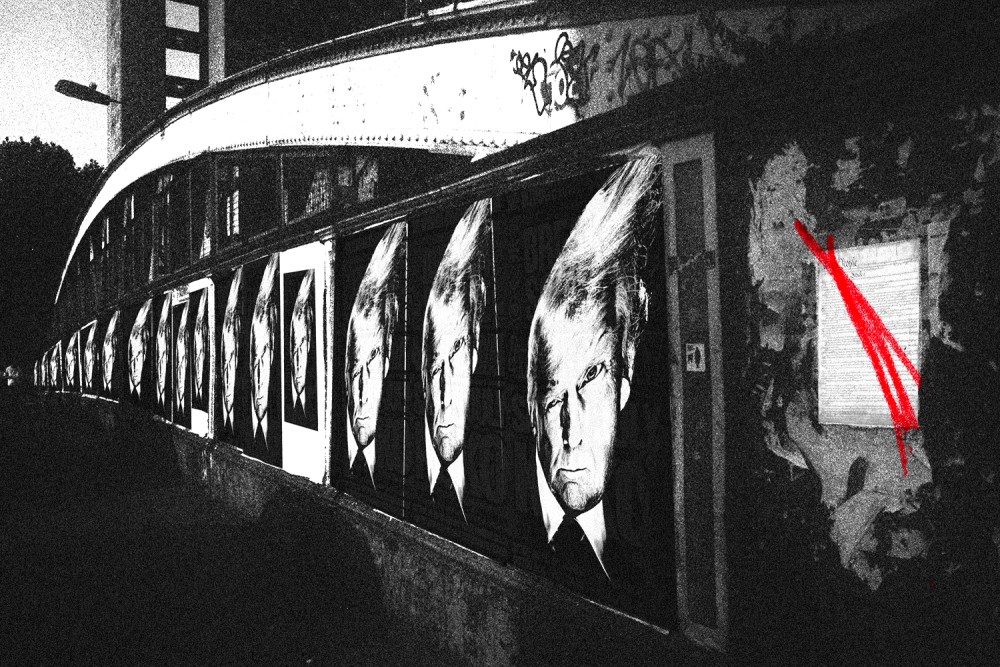What is active citizenship in the era of rule by decree?
American political theology has tended to take democracy and the rule of law for granted. What now?

Century illustration
What does it mean, at this moment in American history, for a political or state action to be “unthinkable”? So much that was formerly unthinkable has become not only thinkable but routine in the last 15 years, from Congress threatening to default on America’s public debt to the blockading of Supreme Court nominees. But unthinkability has been having an especially hard go of it over the last few weeks.
The US is abruptly out of the World Health Organization (leaving China, for whatever it’s worth, as the major player left). We have instantly canceled ongoing aid projects, a critical source of soft power around the world, leaving staff stranded in places they went assuming the good faith of their government and medical devices implanted in medical-study participants. A freeze in grants and loans disbursed by the federal government was partially rolled back but seems to have run faster than the courts can keep up (let alone enforce). Above it all, the Elon Musk-headed “department” created by executive order has been layered over all the functions of the federal government, gaining electronic access to Treasury systems and seemingly even the Social Security Administration without having any official government role (to say nothing of security clearances, background checks, or ethics disclosures).
If you find all these developments (and too many more to include here) troubling, you probably know where to go to find out as much as can be publicly known about them. But what has struck me most forcefully is not so much the substance of any one action, though some are truly shocking. It’s that all of this is being done not just without legal authorization, but in direct contradiction to the power of Congress as laid out in Article 1 of the Constitution. Policies always change, sometimes drastically, when a new administration comes to power. What has changed this time is not just the content of policy but the form: all of this is being done by executive decree. The majorities in both houses of Congress are sitting idly—or eagerly—on the sidelines as the last real source of their power is simply taken away from them.





